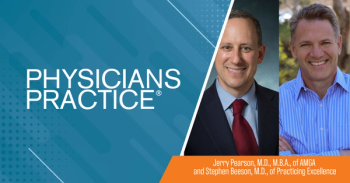
Positive News on Frontlines of the Primary-Care Shortage
When it comes to the number of primary-care doctors in the U.S., bad news seems to be the norm nowadays. Here are some positive developments for a change.
Welcome to Editor's Corner. Here, the editors of Physicians Practice will share their thoughts on the happenings in healthcare and look at the industry from a broader viewpoint.
I recently sought to find a new primary-care physician 'who's located closer to where my wife and I live.
It ended up being a lot harder than I thought. Either doctors don't take our insurance, aren't taking new patients, or just don't have 15 minutes to spare in the next few months.
The primary-care physician shortage is real, people. I am sure you didn't need me to tell you that, but it's interesting to experience firsthand an issue that we seem to talk about every day. I couldn't help but think of the people who aren't lucky enough to have a nice insurance plan and who live in an underserved area. While I consider myself extremely fortunate, I did have trouble with my search (I did eventually find someone). What do less fortunate people go through to get a normal checkup?
There is good news, however, on the frontlines of this shortage.
The researchers are unclear why exactly this is the case, but obviously it's a positive development. They suggest the efforts to promote primary care in a patient-centered care model may be paying off.
Meanwhile, in Colorado,
There are other initiatives happening across the country, including
I talk to primary-care doctors on a regular basis and they all understand why no one (seemingly) wants to go into their area of medicine anymore. Less pay, more hours, more paperwork and insurer-induced stress, and more negative encounters with patients over high bills. The reasons are fairly well established. There needs to be more reasons to get them to go into primary care. I would love to see the CHWS do a follow-up study to understand why those trainees are interested in family medicine.
When we look at the various challenges plaguing healthcare in this country - various types of heart disease, rising rates of obesity, substance abuse,
Here's to hoping New York, Colorado, Michigan, and Northern California end up as trendsetters.
Follow Gabriel Perna on Twitter at
Newsletter
Optimize your practice with the Physicians Practice newsletter, offering management pearls, leadership tips, and business strategies tailored for practice administrators and physicians of any specialty.






